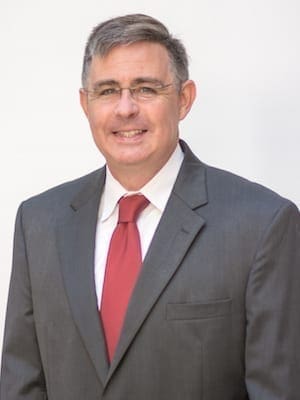With all of the talk about how divided America is, I continue to believe that there is more that we have in common than what drives us apart.
One fundamental need that all humans have is for deep, supportive relationships.
Relationships make the difference when there’s mental distress, an economic crisis or a family loss. Relationships sweeten life and give us hope. Relationships remind us who we are and teach us things we didn’t know about ourselves.
But I believe that there are particular kinds of relationships that especially make our lives better and more hopeful. These are relationships with people who are different from us.
Unfortunately, they can be the hardest to cultivate. So how do you build relationships with people in different ethnic, political and social groups?
Here are six tools to help you:
1. Say “yes.”
Often we have opportunities to get to know people, even invitations to participate in events or activities, but our tendency is to say no to things that are outside of our comfort zone.
When we say “yes,” we may open ourselves up to some discomfort, but we also open ourselves up to new relationships, new experiences and expanded understanding.
2. Go where you aren’t in the majority.
Join an interest group where you know you won’t be in the dominant ethnicity or social class. Seek to build relationships that are across all kinds of lines, and your life will be richer for it.
3. Lean into activities that bring people together.
Music is one of these activities. It can bring people together in a way that a political rally never could. Dance, drama, comedy, sports – these help us to cross racial and political lines if we can use them to build relationships.
4. Avoid the extremes of social media – the “cage fight” and the “echo chamber.”
It’s OK to be engaged in social media, but we need to recognize that it can be a divisive instrument, one that actually leads to family conflict, “unfriending” friends and some of the most corrosive talk in America.
At other times, social media is an echo chamber – people just saying things that others agree with, reinforcing their beliefs and blocking out the perspectives of others.
5. Focus on what you have in common, not on what divides you.
Who doesn’t want safer neighborhoods, good schools and enough food? Maya Angelou got it right when she wrote in her poem “Human Family,” “I note the obvious differences between each sort and type, but we are more alike, my friends, than we are unalike.”
Find ways to talk about common concerns, hopes and needs.
6. Seek to love everyone.
This sounds naive, but if we really seek to love everyone around us regardless of anything that might separate us, we will have lots of relationships across ethnic, political and social groups.
Why? Because we already live in a pluralistic and diverse society.
When we seek to love the people around us, especially those who are different from us, we’ll cross boundaries without even thinking about it. God will give you ample opportunity for diverse, deep relationships.
Jesus said that love is the greatest commandment. There’s nothing more important than to love God with your whole heart, soul, mind and strength, and then to love your neighbor as yourself (Mark 12:30).
In a time of division, we need bridge builders. We need relationships that transcend differences and make for peace.
Brent McDougal is senior pastor of Cliff Temple Baptist Church in Dallas. A version of this article first appeared on Cliff Temple’s blog and is used with permission. You can follow him on Twitter @BrentMcDougal.
Brent McDougal is senior pastor of First Baptist Church in Knoxville, Tennessee.

